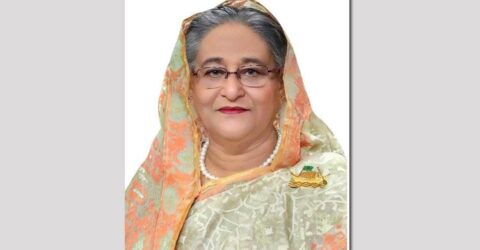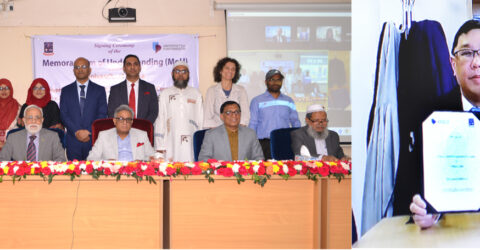
DHAKA : Bangladesh and India on Wednesday agreed to sign the Comprehensive Economic Partnership Agreement (CEPA), a free trade agreement, to boost economic opportunities for two neighboring countries, reports UNB.
“We’ve expressed our consensus on doing Comprehensive Economic Partnership,” Commerce Minister Tofail Ahmed told reporters in a joint briefing at state guesthouse Padma in the city.
He said the duty-free benefits that Bangladesh gets from India will continue until 2027 as Bangladesh is going to be a developed country. “We’ll do Comprehensive Economic Partnership deal so that we can take forward the growing economic relations with India after that.”
Earlier, Bangladesh and India had a lengthy bilateral meeting let by Commerce Minister Tofail Ahmed and his Indian counterpart Suresh Prabhu.
The Indian Minister said the deal will be futuristic and realistic and it will address all concerns of Bangladesh.
Considering the vision of Bangladesh to become a middle income country by 2021 and a developed country by 2041, both ministers agreed that a CEPA covering goods, services and investment would provide a sound basis for substantial enhancement of trade and commercial partnership.
They directed their officials to undertake a joint study on the prospects of entering into a bilateral CEPA, according to a joint statement issued after the meeting. Bangladesh has requested the Indian side to withdraw the anti-dumping duty on Bangladesh’s jute and jute-made products.
In reply, Indian side assured Bangladesh of working on it to withdraw the duty. India had slapped anti-dumping duty ranging from $19 to $352 a tonne on jute yarn/twine, hessian fabric and jute sacking bags brought from Bangladesh and Nepal on January 5, 2017.
Jute traders of the two countries will also have meeting to identify problems and resolve those, said the Bangladesh Commerce Minister. The two countries also discussed BSTI (Bangladesh Standards and Testing Institution) certification issues and India agreed to accept BSTI certification for six more products.
Currently, India is accepting BSTI certification for 21 food items from Bangladesh.
More Border Haats Soon
Minister Tofail said both Bangladesh and India will open six more border haats and one of the haats will be opened in Sherpur soon.
Both Ministers agreed to fast-track the completion of six new border haats which are under construction and identification of locations for six additional border haats, including Dalu-Nakugaon in Sherpur district proposed by Bangladesh in consultation with relevant stakeholders, including Government of Meghalaya by the Indian side.
Both Ministers expressed their intention to inaugurate the first additional border haat at the earliest.
In a discussion on Tuesday night on ‘India-Bangladesh Trade Relations’, the Indian Minister congratulated government of Bangladesh for making rapid socioeconomic progress.
He noted that once Bangladesh graduates from the Least Developed Country (LDC) Status, it would not have duty free quota free access to the Indian market under SAFTA.
He proposed that, in view of this, India and Bangladesh should consider signing a CEPA which would help trade in goods and services and investments.
Bangladesh and India also discussed connectivity, energy cooperation and investment issues.
Bangladesh sides invited more Indian investment in Bangladesh and offered special economic zones for the Indian investors.
Underlining the potential of jute as a natural and environment friendly fiber, the Indian Minister suggested that a joint business group could examine the issues related to this sector. He also thanked Tofail Ahmed for playing an important role in resolving issues and strengthening multilateralism in the global trading system.




